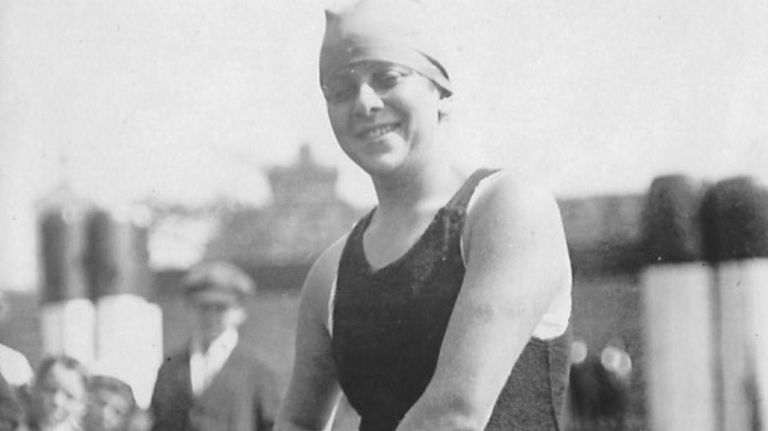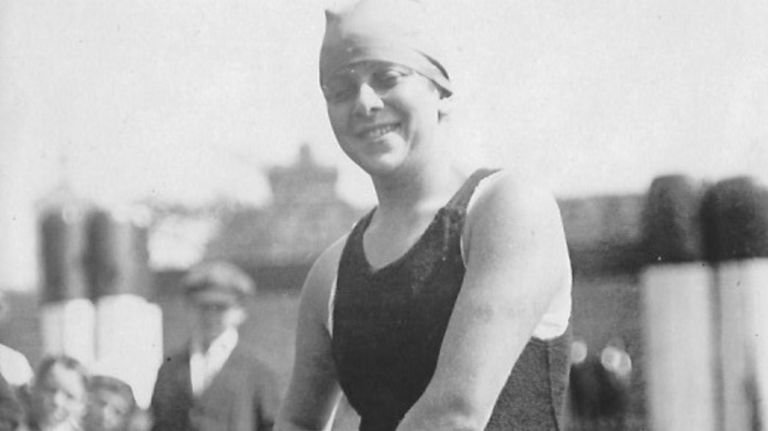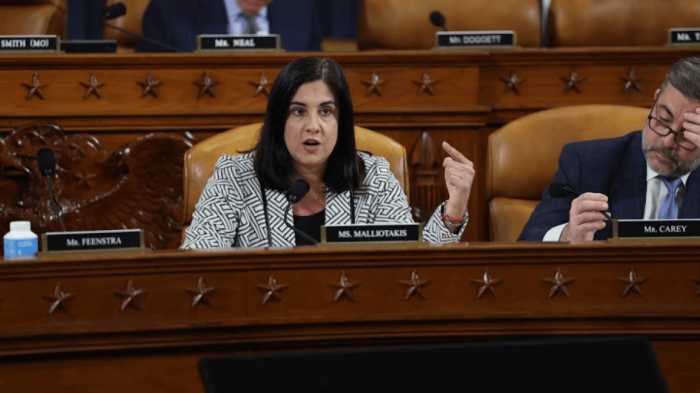
When Joanna Langfield was growing up, her grandmother would go for a swim by their house in Connecticut. She wouldn’t return for hours, having paddled all the way out to a lighthouse far from land.
But Langfield’s grandmother wasn’t an ordinary swimmer. She was Ida Elionsky, the first woman to swim around the island of Manhattan in 1916, and who is being inducted into the International Swimming Hall of Fame on Saturday.
"I thought women should know about historical figures and especially historically athletic figures and especially about those who didn’t talk about it that much. I thought it was important that women realize that even though this was 100 years ago, it wasn’t that long ago," said Langfield, who started pushing for her grandmother to be included in the hall of fame in 2016.
"These marathon swimmers… you have your own language. I kind of hope that she’s up there looking down at this inclusion with people who know her language and understand and appreciate her stories. I’m sure she would have loved to talk to them and shared all of that stuff. I hope maybe she can hear it a little bit and understand people appreciate what she did," Langfield said.
This year, nine people are being inducted into the hall of fame, including Elionsky, said Bruce Wigo, the former CEO and president and current historian with the International Swimming Hall of Fame. She is being inducted as a "pioneer" in a ceremony in Australia.
"In that time period, Elionsky was really a pioneer. Women were supposed to be not athletic," Wigo said. "She swam in a bathing costume, pretty much like a men’s swimming costume, that was absolutely obscene, [but] you can’t swim in bloomer costumes."
He added: "She wasn’t alone, but her feat was singular."
Langfield, who has a radio show and podcast, said the Manhattan swim was actually supposed to be a race between Elionsky and her brother, who had tied his wrists and ankles together.
"And he figured… he would just have his sister swim alongside and he would win. It didn’t exactly work out that way — she won," she said. The entire swim took 11 hours and 35 minutes on a rainy day with high tide and "included some time when she would have to stop and tread water because she would have to wait for her brother and a boatload of journalists. It was very interesting getting all the information about this because it was kind of in pieces all over."
But Langfield said that while her accomplishments were extraordinary, Elionsky didn’t really get the credit she deserved. And later in life she often didn’t like to talk about her career, and Langfield would try to catch her off guard to ask about it.
"She not only didn’t really get the limelight, which I don’t think she wanted, but even later in life as things started to change for women and women were told they could be proud of their accomplishments… she didn’t want to talk about it a lot. And every once in a while she’d tell me little things," she said. "It made me very sad that she never could feel as happy about what she did and as proud of what she did as we all felt."
That’s part of what Saturday’s ceremony is intended to correct, Wigo said.
"The pioneer category was created to look back at some of the pioneers that were many years before the start of the hall of fame itself or someone who was lost by time," he said. "It’s to set the record straight."






































